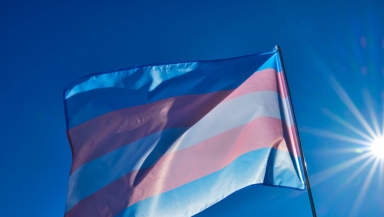
(CP) A Minnesota judge has ordered USA Powerlifting to allow trans-identified males to compete in the women's division amid a national debate about the fairness of allowing biological men who identify as females to compete against women.
In an opinion issued last week, Minnesota District Court Judge Patrick Diamond determined that USA Powerlifting, which describes itself as the "leading drug-tested powerlifting organization in the United States," violated the Minnesota Human Rights Act by implementing a policy banning trans-identified males from competing in the women's division.
The Minnesota Human Rights Act states that it "is an unfair discriminatory practice to deny any person the full and equal enjoyment of the goods, services, facilities, privileges, advantages, and accommodations of a place of public accommodation because of race, color, creed, religion, disability, national origin, marital status, sexual orientation, or sex."
Additionally, the law declares that it "is an unfair discriminatory practice for a person engaged in a trade or business or in the provision of a service to refuse to do business with, to refuse to contract with, or to discriminate in the basic terms, conditions, or performance of the contract because of a person's race, national origin, color, sex, sexual orientation, or disability, unless the alleged refusal or discrimination is because of a legitimate business purpose."
Diamond concluded, "USAPL's policy constitutes both public accommodation discrimination and discrimination in trade or business."
USA Powerlifting gave plaintiff JayCee Cooper and other trans-identified athletes the option to compete in a separate category, thereby preventing biologically female athletes from having to compete against biological males while not forcing trans-identified athletes to compete in the division that corresponds with their biological sex.
Diamond dismissed this move as inadequate, arguing that by "making a person pretend to be something different, the implicit message being that who they are is less than."
In his opinion, Diamond cited "expert testimony" maintaining that, "From a psychological perspective, forcing a transgender person to act as their sex assigned at birth is harmful and can increase gender dysphoria." The judge insisted that "the internal distress is often debilitating and the primary way(s) to reduce gender dysphoria is by affirming one's gender medically and socially."
The order requires USAPL to "cease and desist from all unfair discriminatory practices in business because of sexual orientation," in addition to submitting revised policies that comply with the Minnesota Human Rights Act.
In the "Transgender Participation Policy" at the center of the lawsuit, USA Powerlifting points to the biological differences between men and women, explicitly noting how males, on average, have "increased body and muscle mass, bone density, bone structure, and connective tissue."
Following the ruling, USA Powerlifting updated its policy to indicate that "USA Powerlifting Transgender Policy does not apply to [Minnesota] competitions." In a statement to local news outlet KARE-TV, USA Powerlifting CEO Larry Maile defended the policy and indicated an intention to appeal the decision.
"Our position has been aimed at balancing the needs of cis- and transgender women, whose capacities differ significantly in purely strength sports," he asserted. "We have received a summary judgment decision from the Court finding us liable for discrimination. We respectfully disagree with the Court's conclusions. We are considering all of our options, including appeal."
Cooper, a trans-identified biological male, cheered the ruling: "I feel mostly relief, I think we needed a win here and it feels good to get that."
The ruling comes as concerns about fairness for women's sports have loomed large in U.S. politics.
Eighteen states have passed laws requiring athletes to compete on sports teams that match their biological sex as opposed to their stated gender identity: Alabama, Arizona, Arkansas, Florida, Idaho, Indiana, Iowa, Kentucky, Louisiana, Mississippi, Montana, Oklahoma, South Carolina, South Dakota, Tennessee, Texas, Utah and West Virginia.













